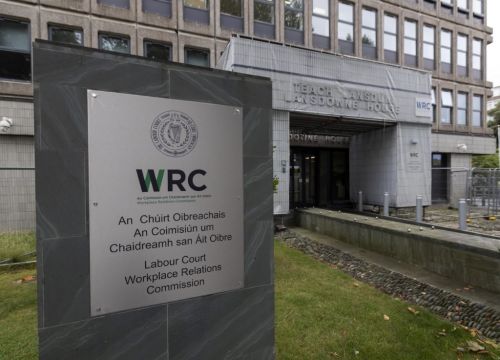The Brazilian government has been ordered to pay compensation of €13,554 to a member of its embassy staff in Dublin who was not permitted to carry over annual holidays after she had made a complaint about being discriminated against over her maternity leave.
The Workplace Relations Commission (WRC) ruled that Nicole Marques Montano had been victimised as the embassy had reversed its previous position of allowing her to carry over annual leave into another year “hot on the heels” after she had filed the complaint.
Ms Marques Montano claimed her employer, the Federative Republic of Brazil, had breached the Employment Equality Act by withdrawing her leave entitlement after making the complaint.
She told the WRC she had submitted a formal complaint to the deputy head of mission at the Embassy of Brazil on December 16th, 2021, about its decision to deny her a top-up payment for the duration of her maternity leave.
Ms Marques Montano contrasted her situation with a male colleague who had been paid a discretionary top-up payment during his period of sick leave.
“I feel discriminated against for being a woman,” Ms Marques Montano said, also referring to the workplace as a “sexist environment”.
She stated she would use the appropriate legal apparatus in either Ireland or Brazil to pursue her complaint.
No representative of the Brazilian government attended the hearing, although it was represented by solicitor, Gerald Kean, who strongly rejected the allegation that his client had victimised Ms Marques Montano by engaging in a retaliatory act.
Protected act
WRC adjudication officer, Máire Mulcahy, said the complaint made by Ms Marques Montano in December 2021 conformed with the definition of a protected act.
Ms Mulcahy noted the adverse or retaliatory treatment occurred on January 1st, 2022, when the embassy did an “about turn” and withdrew permission which it had already granted to the complainant to carry over 14 days of untaken annual leave.
She ruled that the “sudden reversal of a commitment” that had been given on several dates the previous year constituted a detriment.
The WRC said the legitimacy or otherwise of the embassy’s position was not the issue.
“It is the fact that until she lodged the grievance in which she complained of discrimination, the respondent had committed to allow her to add this untaken leave to travel to Brazil in 2022,” Ms Mulcahy said.
She added it was hard to avoid the conclusion that it was her complaint that prompted the retraction of commitment “hot on its heels” which resulted in the loss of a benefit for Ms Marques Montano.
Ms Mulcahy added: “Victimisation happens when a worker is treated less favourably because they have asserted a right not to be discriminated against on the basis of their gender by making a complaint.”
She said it was not the point that the embassy held that its position was legitimate and in keeping with Irish statutory entitlements.
The WRC noted that the embassy had provided written evidence in which it indicated it had made an error in confirming to the complainant that she could carry over annual leave.
It awarded Ms Marques Montano a sum of €13,554 which is the equivalent of six months’ salary.
Annual leave
The WRC also found in favour of the complainant in relation to her claim that the loss of 14 days leave through the reversal of the embassy’s decision represented a breach of the Organisation of Working Time Act 1997.
It ordered the Brazilian government to restore the 14 days leave to her “with immediate effect.”
However, the WRC rejected her complaint that the embassy had made an unlawful deduction of €7,674 from her wages over a six-month period ending in February 2022 while she was on maternity leave.
Ms Marques Montano said the sum was a top-up figure representing the difference between State maternity benefit rates and her salary, which she claimed she was promised by a manager in January 2020.
She pointed out that the last employee before her to go on maternity leave was given the top-up payment.
The WRC said there was no provision in her work contract about an entitlement to a top-up payment.
It ruled that the fact that the embassy had written to the Foreign Ministry in Brazil to seek authorisation for the top-up was evidence of the discretionary nature of the payment.







